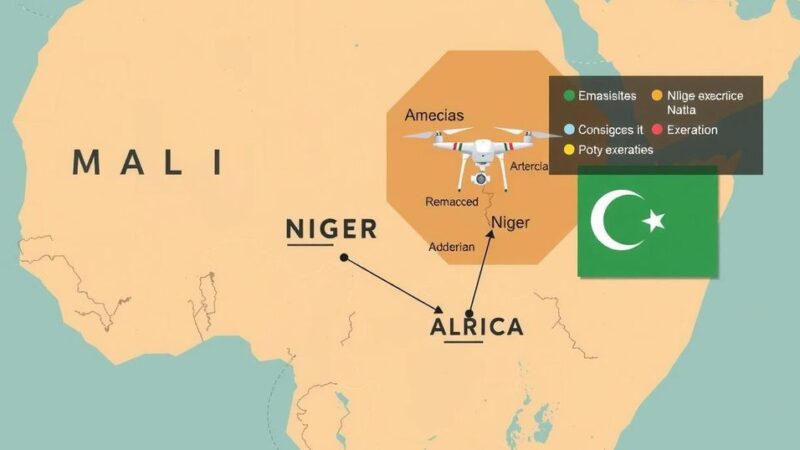Niger has accused Nigeria of attempting to destabilize the country by collaborating with foreign powers, including allegations of involvement in acts of sabotage against the Niger-Benin pipeline. This situation marks a significant escalation in tensions between the two West African neighbors, highlighting the complexities of regional politics following Niger’s military junta takeover.
Tensions escalate between Niger and Nigeria, as the junta-led government in Niger alleges that Nigeria is engaged in actions aimed at undermining its stability through a coalition with foreign entities. Niger asserts that Abuja is being utilized as a staging ground for disruptive initiatives. Additionally, Niamey contends that Nigeria has played a role in the recent sabotage of the Niger-Benin pipeline and is accused of harboring French officials, in collaboration with France, its former colonial ruler. This situation highlights the growing rift between the two nations, driven by accusations of interference and covert operations.
The geopolitical landscape in West Africa is currently fraught with tensions, particularly between Niger and Nigeria. Following a military coup in Niger, the junta has raised concerns about external influences and their implications for national security. The alleged involvement of Nigeria in destabilization efforts, including sabotage of critical infrastructure, underscores the volatile relationship between the two countries. Historical ties with colonial powers, such as France, also play a significant role in shaping the current dynamics of the region, prompting assertions of complicity and influence.
In summary, the accusations levied by Niger against Nigeria reflect a complex interplay of regional politics, historical grievances, and contemporary security challenges. As both nations navigate these turbulent waters, the potential for further conflict remains high, emphasizing the need for diplomatic engagement to address the underlying issues. The accusations not only point to immediate bilateral tensions but also indicate broader geopolitical concerns involving foreign powers in the region.
Original Source: www.firstpost.com






